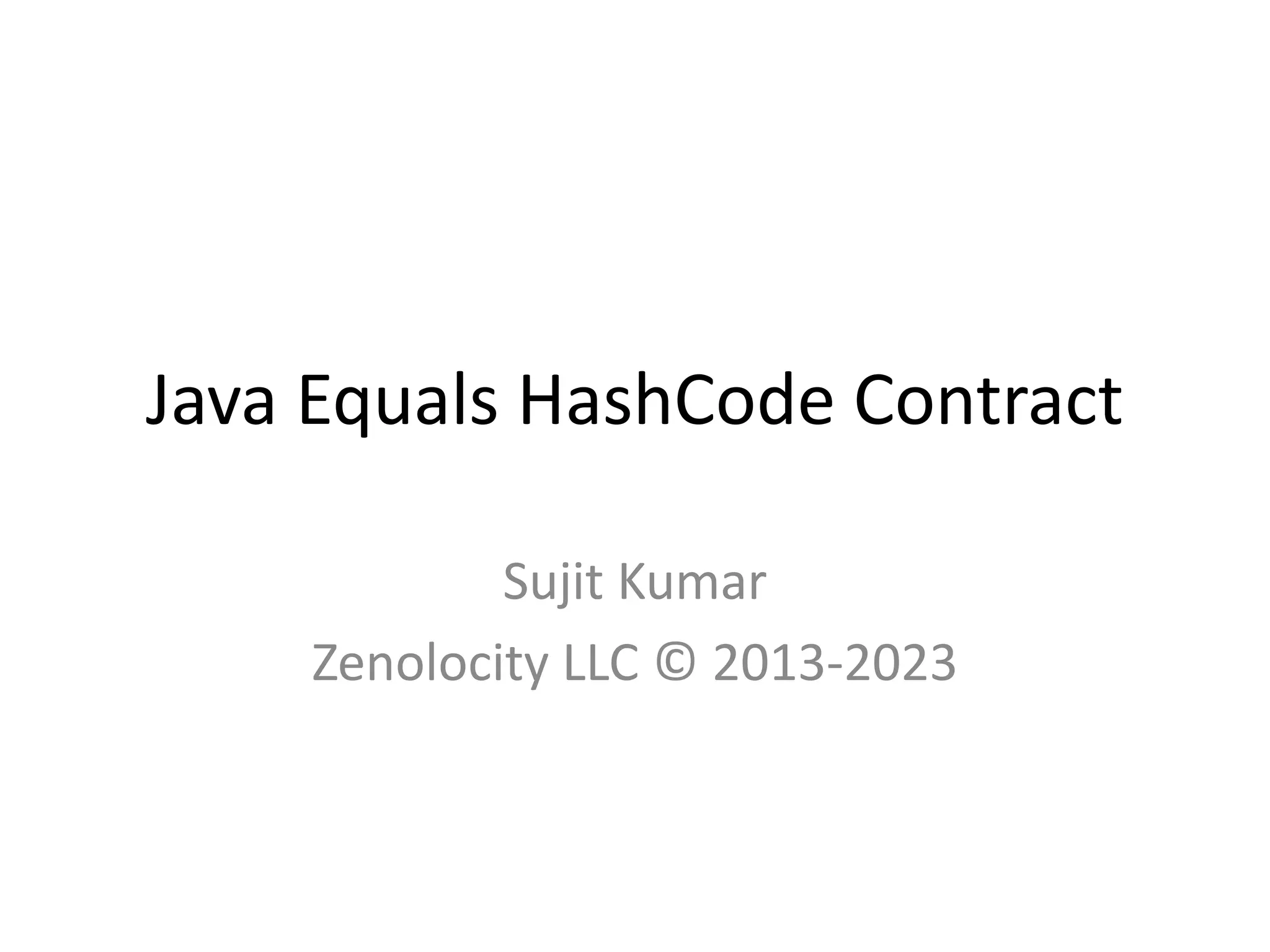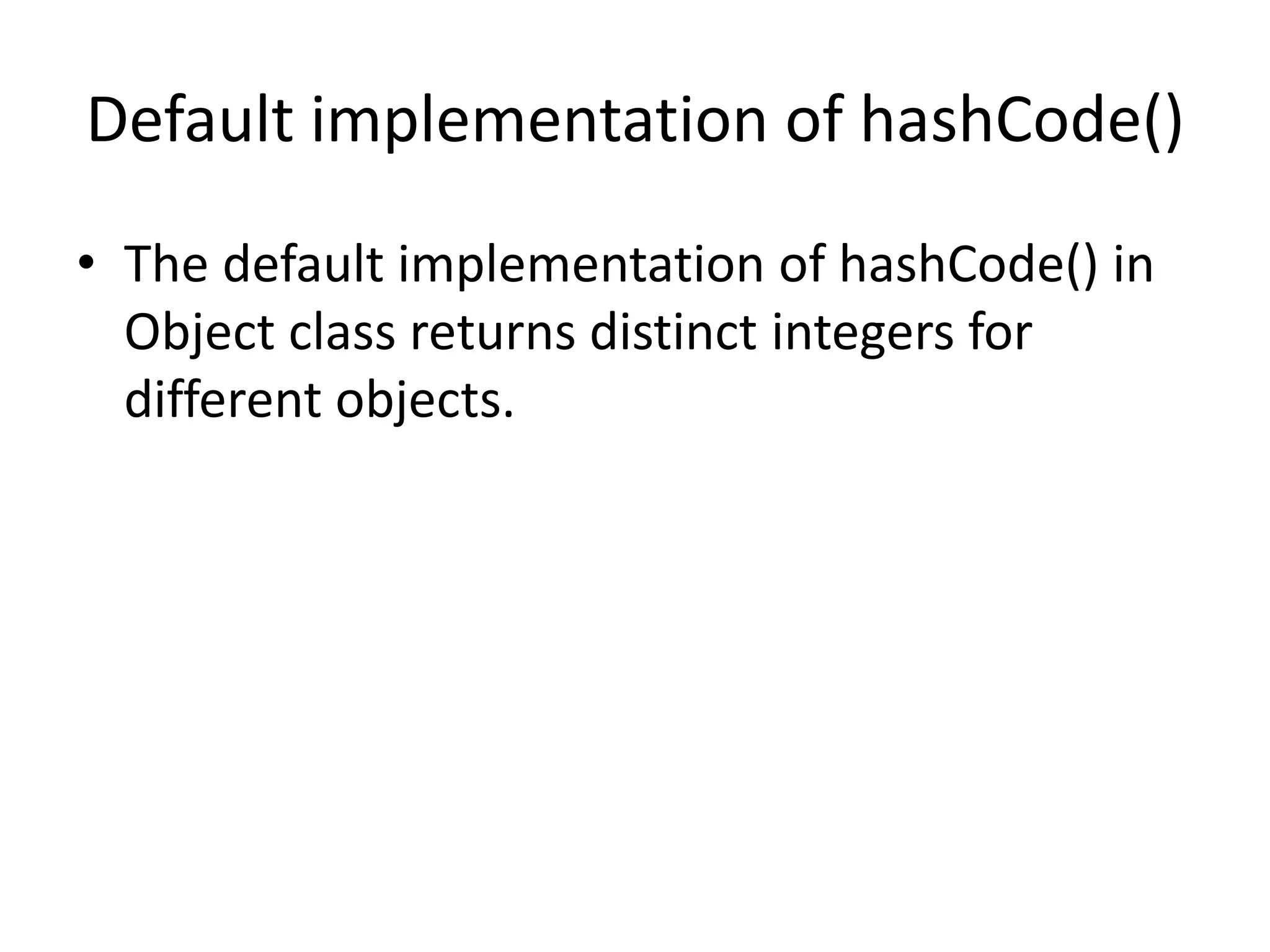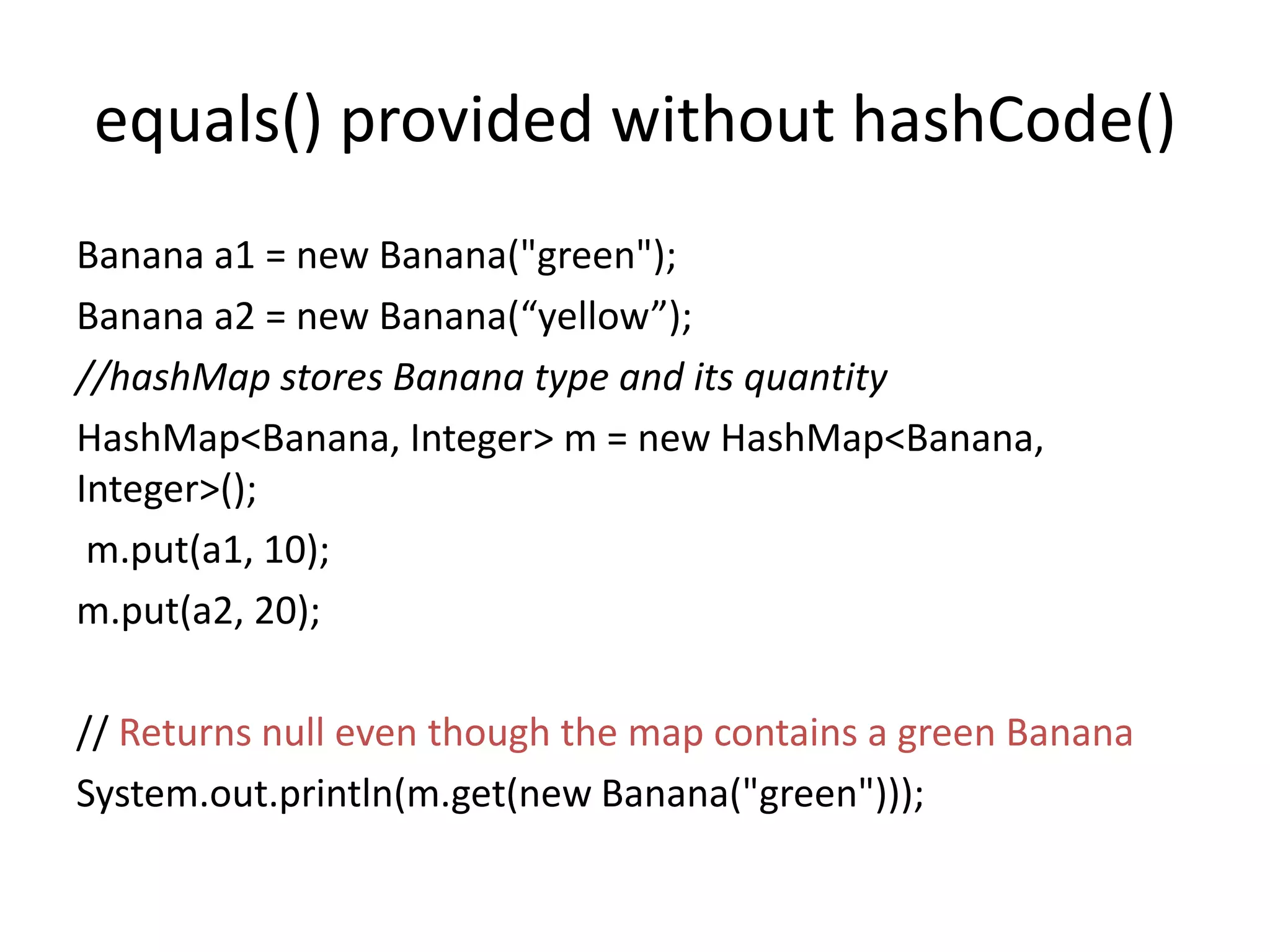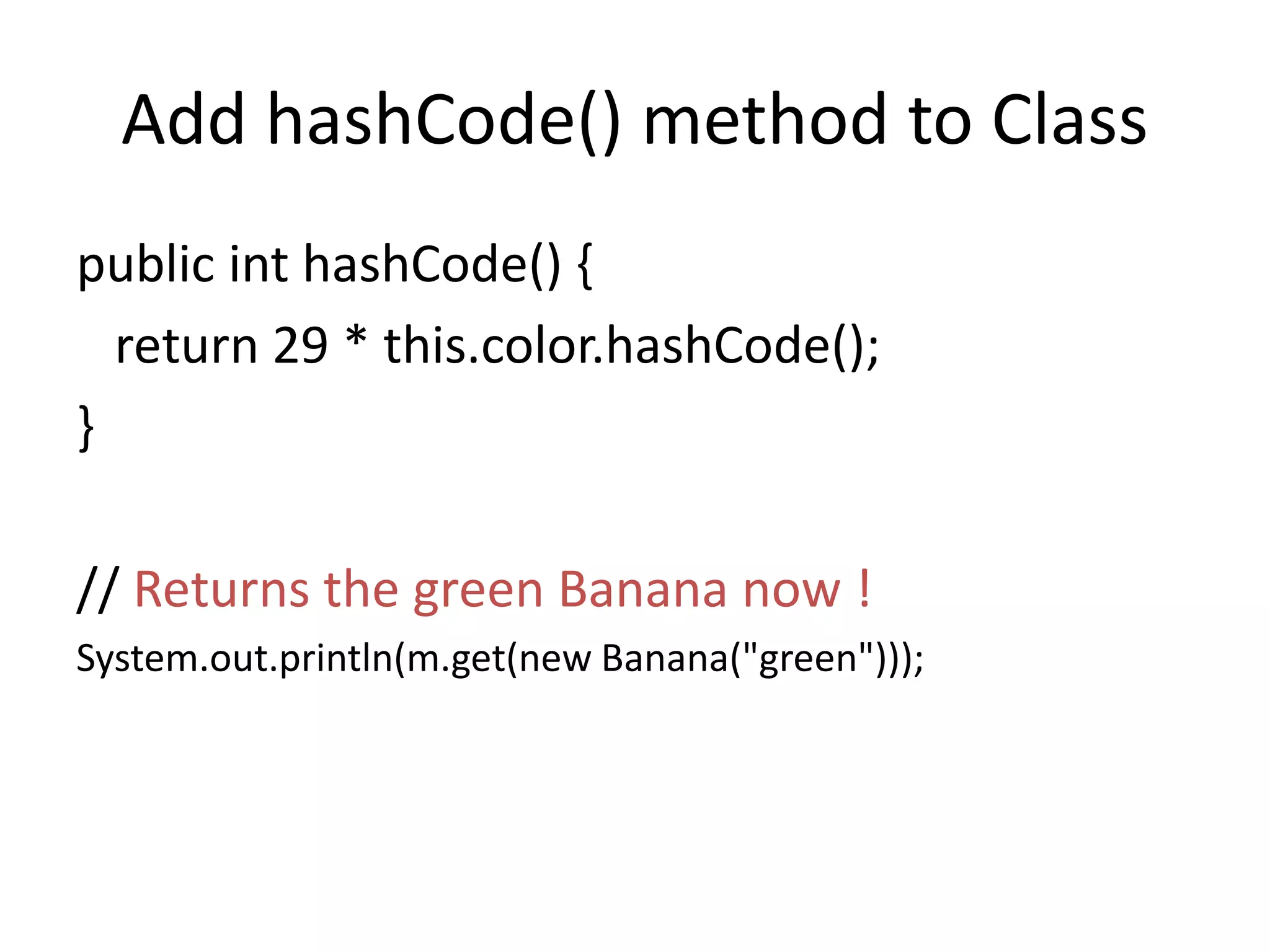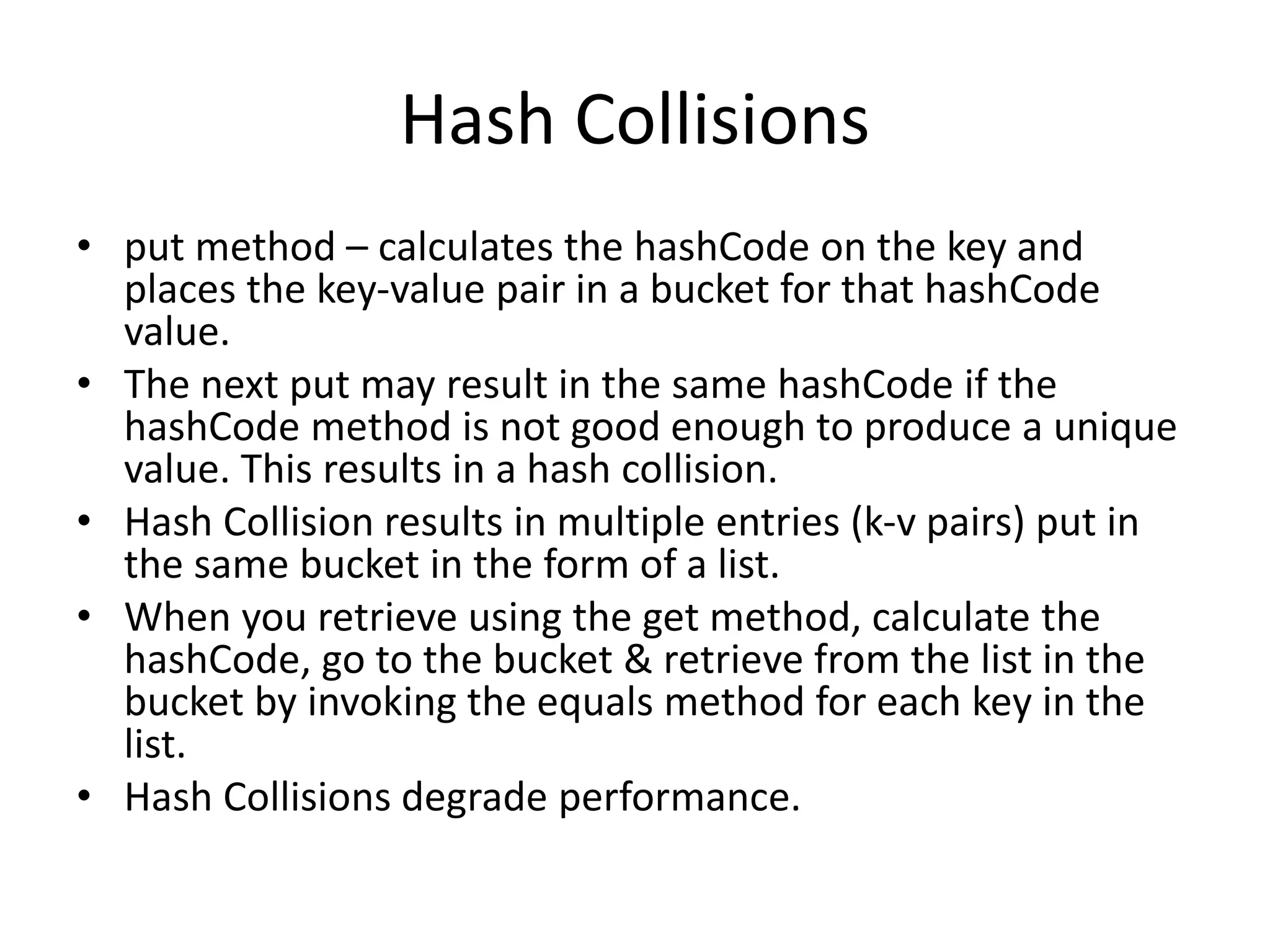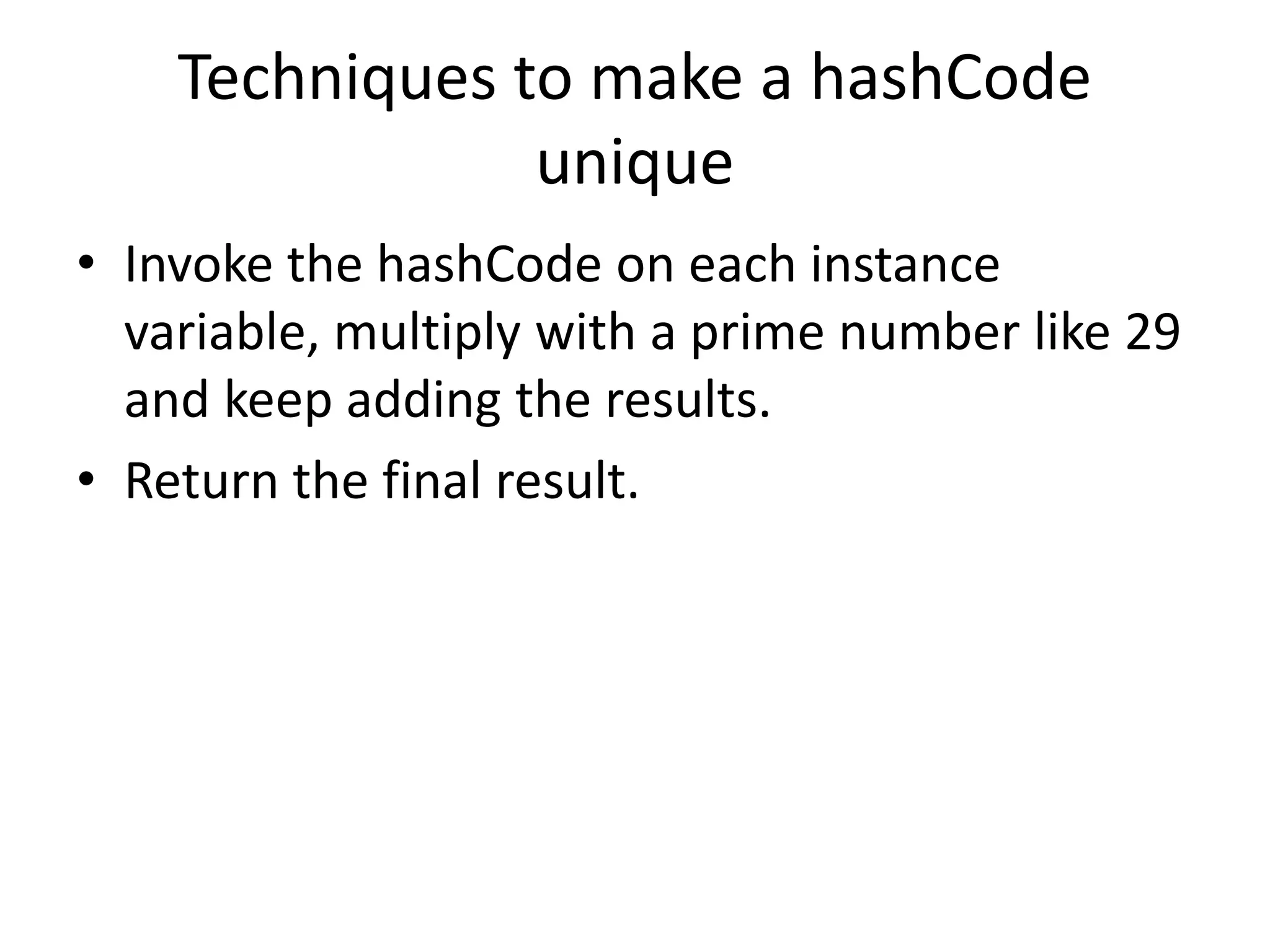The document discusses the contract between equals() and hashCode() methods in Java classes. It states that 2 equal objects must have the same hashCode, but the reverse may not be true. It then provides an example class Banana that implements equals() but not hashCode(), causing issues when used as a key in a HashMap. Finally, it discusses how to implement hashCode() to avoid collisions and improve performance.
